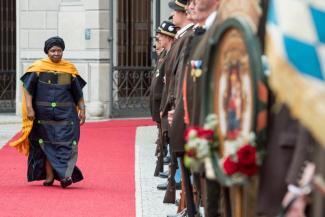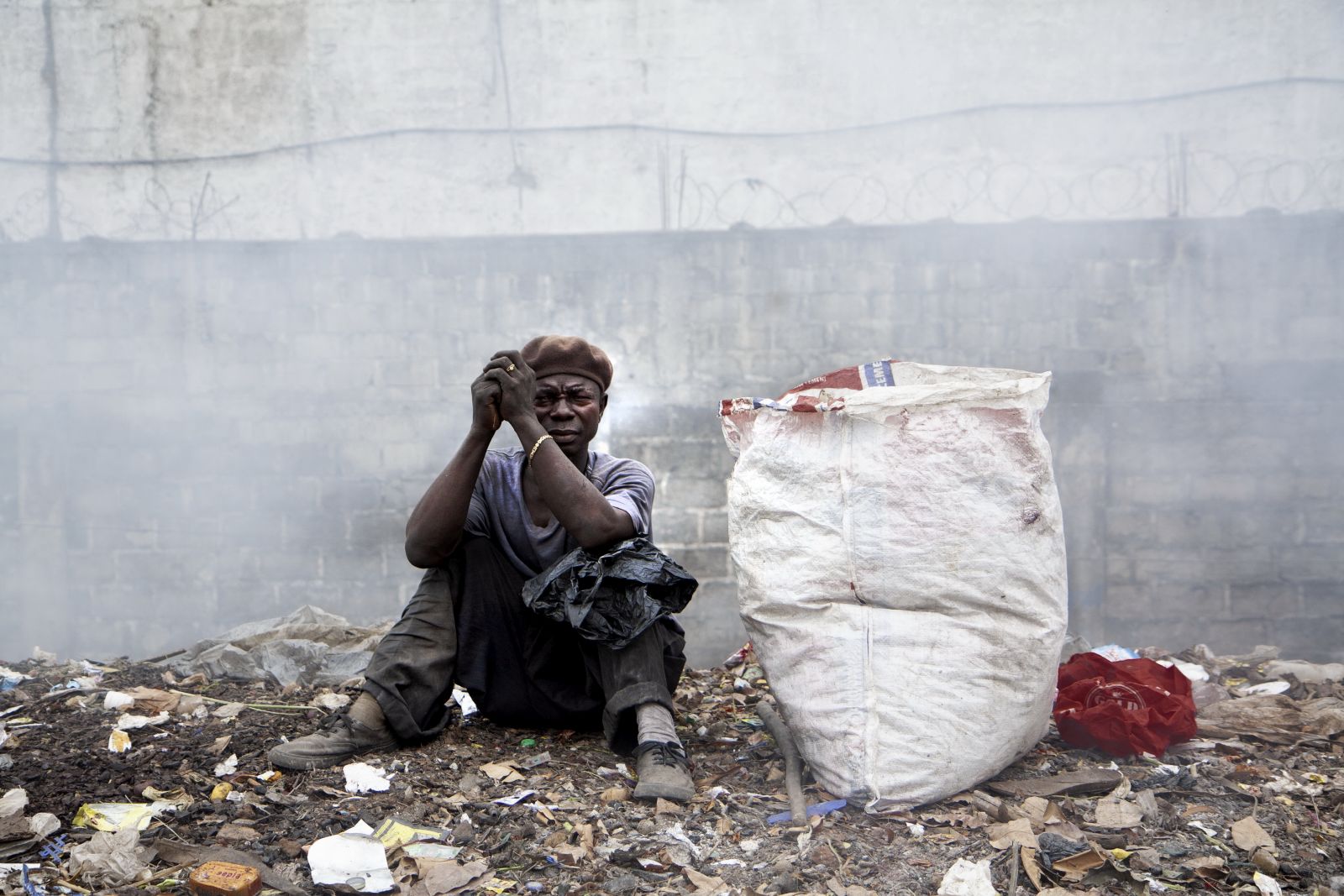G7 summit
Climate wins

For the first time, the group of seven that comprises Canada, France, Germany, Italy, Japan, Britain and USA has committed to a complete decarbonisation of the global economy. They want to take a leading role, phasing out fossil-fuel emissions during this century. In their joint declaration, the leaders state: “We support […] the upper end of the latest IPCC [Intergovernmental Panel on Climate Change] recommendation of 40 to 70 % reductions by 2050 compared to 2010.”
Furthermore, the G7 reaffirmed at their summit in Schloss Elmau, Bavaria, that their countries will make available an annual $ 100 billion of private and public funding to boost climate adaptation and mitigation in developing countries. Moreover, they aim to make the Green Climate Fund fully operational this year.
Sending a strong signal to the UN climate-change conference in Paris in December, the G7 emphasise that they are determined to reach a legally binding agreement that is “ambitious”, “robust” and “inclusive”. The final statement reads: “This should enable all countries to follow a low-carbon and resilient development pathway in line with the global goal to hold the increase in global average temperature below 2°C.”
The last G7 country that still has to submit to the UN what climate action it plans to take, is Japan. After the summit, the government declared it will publish its INDC (intended nationally determined contribution) by the end of July. Germanwatch, a civil-society organisation, however, points out that the G7 pledges – including the EU’s INDC – so far will not suffice to reach the goals set in Elmau.
The hazards of climate change mostly affect the most vulnerable developing countries, and the G7 want to expand insurance coverage against negative impacts for up to 400 million people by 2020. They promise to support early-warning systems too.
0.7 % target reaffirmed
Regarding other development issues, the G7 reaffirmed their commitment to spend 0.7 % of gross national income (GNI) on official development assistance (ODA). They stated the intention “to reverse the declining trend of ODA to the least-developed countries (LDCs) and to better target ODA towards countries where the needs are greatest”. They want the post-2015 agenda for sustainable development, that the UN is set to adopt this year, to be “ambitious, people-centred, planet-sensitive and universally applicable”.
The heads of state and government also discussed women’s empowerment, health care, food security and international supply chains. Germany’s Federal Government had put these issues on the agenda. Following the German proposal, the G7 want to increase the number of women and girls who get technical and vocational trainings in developing countries thanks to G7 measures by one third in the next 15 years. They also promised to lift 500 million people in developing countries out of hunger and malnutrition by 2030.
Civil-society organisations bemoaned that the declaration lacks tangible commitments and financial pledges. Without sufficient funds, it will be difficult to help the poor, Oxfam pointed out, and Welthungerhilfe demanded that the declaration must be underpinned fast “by a concrete and binding action plan, financial commitments and accountability mechanism”.
On the second day, the leaders of Nigeria, Senegal, Ethiopia, Liberia, South Africa, Tunisia and Iraq were invited to the summit. Heads of major international organisations also attended the summit, including the chairperson of the African Union Commission Nkosazana Dlamini-Zuma. In the so called outreach programme, they discussed climate financing, the battle against world hunger, the fight against terrorism and health issues.
Katja Dombrowski













